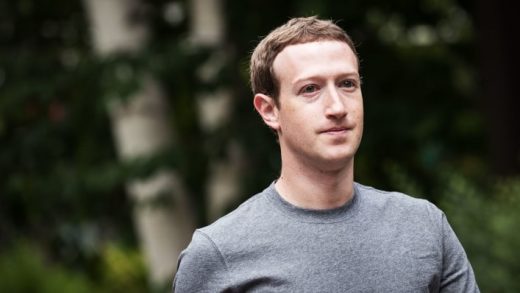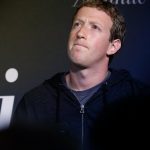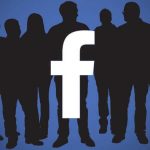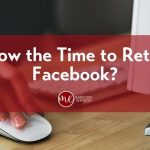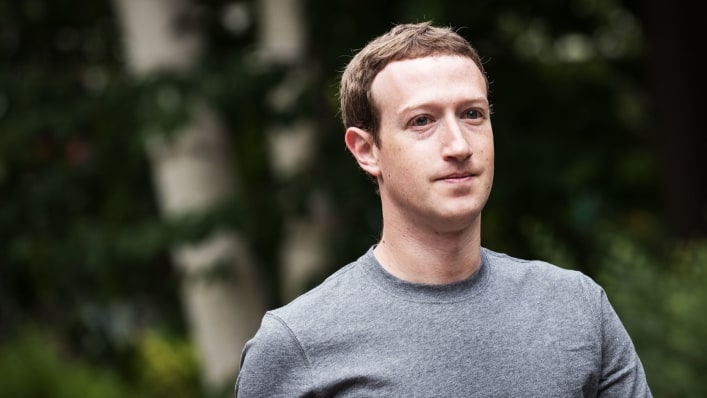Facebook: Foiling Rogue Posts And Ads Will Significantly Hit Profits
Facebook continues to be a money-making powerhouse—as evidenced by its first-ever $10 billion quarter, which blew away analysts’ expectations for revenue and earnings per share. But if the company wants to meaningfully address the concerns raised when Russians exploited its platforms to interfere in last year’s U.S. elections, it’s going to have to invest so much in new people and technology that 2018 profits will be “significantly” impacted.
That was the warning Mark Zuckerberg issued today. During Facebook’s Q3 earnings call, the company’s CEO expressed how “upset” he is by Russians using its platforms to “sow mistrust” and undermine the tools Facebook has built. In order to do something about it, he’s committing the company to spending so much next year that the bottom line will take a big hit.
“I’ve directed our teams to invest so much in security on top of the other investments we’re making that it will significantly impact our profitability going forward,” Zuckerberg said, “and I wanted our investors to hear that directly from me.”
CFO David Wehner said he expects the many initiatives that Facebook plans on implementing next year to increase total expenses by between 45% and 60% compared to 2017. Not all those efforts are related to security or safety, but clearly they do make up the bulk—especially the cost of adding thousands of people who will manually review content.
All Eyes On Facebook
The last few weeks have been fraught for the company—at least in the realm of public relations and in the way it’s seen on Capitol Hill. Investors have been a little less worried, as evidenced by the company hitting an all-time-high stock price prior to the release of its Q3 earnings report earlier today, which beat the expectations of even the most optimistic analysts.
Still, Facebook knows the world is watching what it does. On one hand, Congress has spent the last two days questioning the company—and Twitter and Google—about how online platforms were taken advantage of by the Russians. And on the other hand, the media has been unrelenting in criticizing the company as its accounting of the extent of the problem has evolved week by week.
Facebook is clearly eager to be in control of its own destiny, rather than be forced by legislation to change the way it works. And while experts don’t believe bills like the Honest Ads Act—introduced earlier this month by senators Amy Klobuchar, Mark Warner, and John McCain—have much chance of passing, the company and its peers in Silicon Valley would much rather be seen as proactive in implementing the kinds of changes that will satisfy Congress and other observers.
Among them are changes in ad transparency that will make it possible for people to see not only who’s paid for a political ad, but also all of that advertiser’s other ads, who it’s targeted with the ads, and how much it’s spent.
“This is part of a much bigger focus on protecting the security and integrity of our platform and the safety of our community,” Zuckerberg said. “It goes beyond elections, and it means strengthening all of our systems to prevent abuse and harmful content.”
Big Investments
Now, Zuckerberg continued, Facebook is planning on investing a great deal more in an attempt to defeat the bad actors, and their bad behavior. And while many are sure to be skeptical about how effective any such efforts will be, he confidently predicted success. “For those who’ve followed Facebook,” he said, “you know that when we set our minds to something, we’re going to do it. It may be harder than we realized up front, it may take longer, and we won’t be perfect, but we will get it done.”
To begin with, Facebook will double the number of people it has working on safety on security—from 10,000 to 20,000, though in answer to an analyst’s question, Wehner admitted that the 10,000 figure is made up of both Facebook employees and those working for partners.
Zuckerberg also committed to at least doubling the company’s engineering efforts focused on security, as well as to build new artificial intelligence tools to detect “bad content and bad actors, just like we’ve done [previously] with terrorist propaganda.”
Facebook is a public company, so its primary responsibility is to stockholders. Yet Zuckerberg used the earnings call to at least pay lip service to the idea that Facebook intends to look out first and foremost for its community and society at large. “I want to be clear about our priorities,” he said. “Protecting our community is more important than maximizing our profits.”
Wall Street Isn’t Sure
Investors may not agree with Zuckerberg’s priorities. As of this writing, in after-hours trading, the company’s stock is down 1.84% to 179.30 after closing at $182.66. That’s in spite of its fantastic earnings report.
As Mark Maheny, an analyst with RBC Capital Markets, put it in a comment he made during the earnings call, “I think this incremental spend or this materially increased spend on security is highly unfortunate.”
However, Maheny followed up by essentially making Zuckerberg’s case for him, acknowledging that spending now will pay off over time. “But I think it makes eminent sense,” he said. “I think most long-term investors realize that community maximization including security will lead to long-term profit maximization.”
Of course, cynics will conclude that that’s exactly what Facebook is thinking—that its commitment isn’t really to the community or to society, but to the bottom line, and that it knows that it must invest now to tackle the problems that are on the front pages of every newspaper and news site every day, lest Congress step in and force changes on it that will have larger bottom-line impact.
Zuckerberg himself said so. “People do not want false news or hate speech or bullying or any of the bad content that we’re talking about,” he said. “To the extent that we can eradicate that from the platform, that will create a better product, which will also create a stronger long-term community and better business as well.”
And he also asked for a little understanding. “The reason why we haven’t been able to get these to the level we want today,” Zuckerberg said, “is not because we somehow want them on the platform. It’s that it’s a really hard problem.”
Fast Company , Read Full Story
(24)

